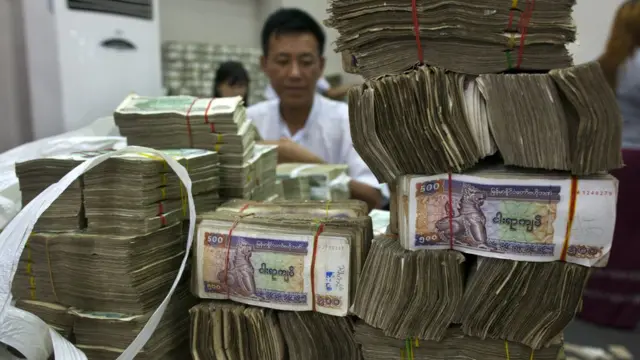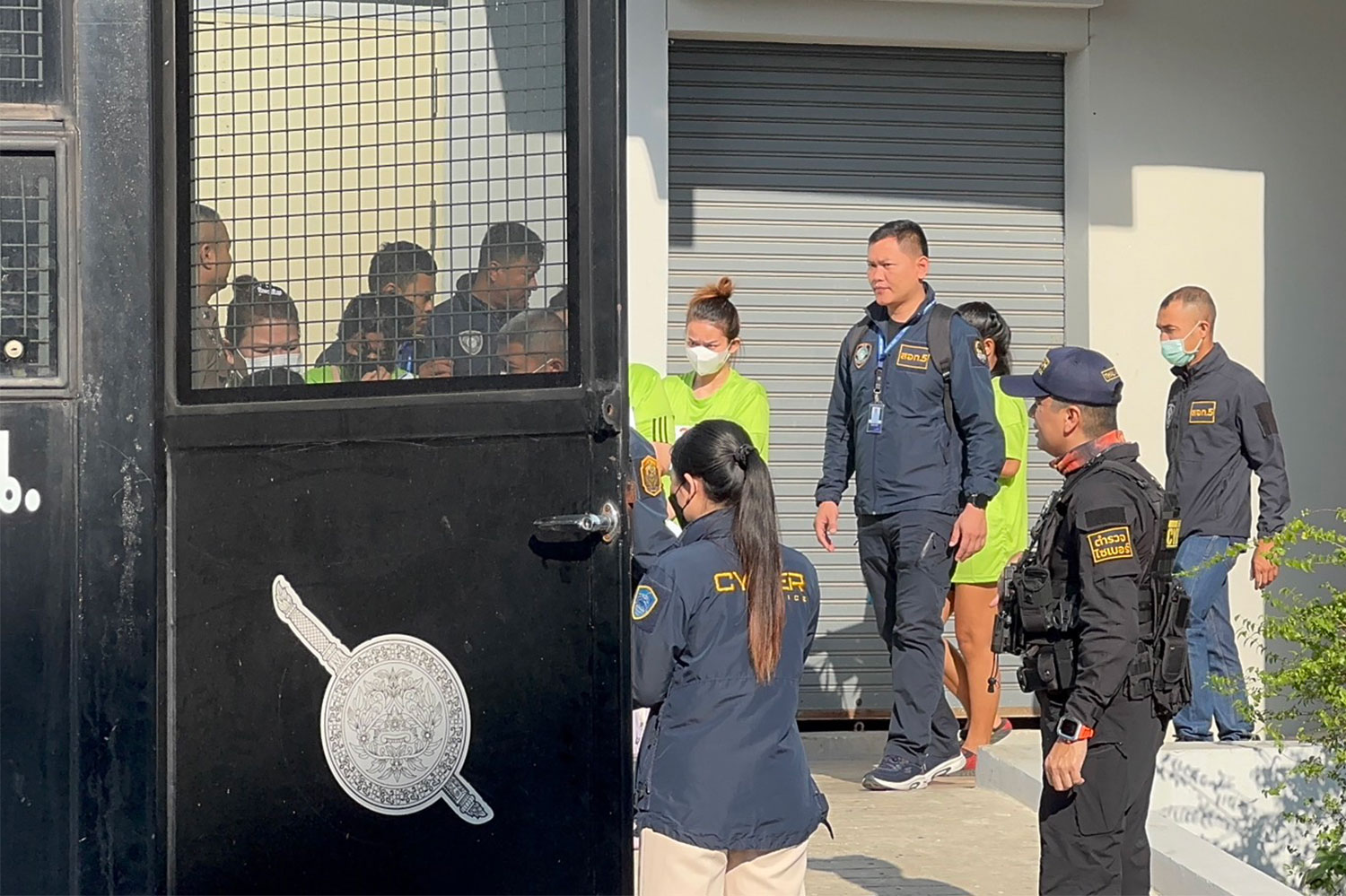BANGKOK – Thailand’s National Broadcasting and Telecommunications Commission (NBTC) announced in February 2025 that call centre scams had reached their lowest levels in years. This drop followed tough action along the Thai-Myanmar border, where authorities cut off power, fuel, and internet to known scam hotspots such as the Shwe Kokko area in Myawaddy.
These efforts, combined with support from China and Myanmar, led to the rescue of more than 7,000 trafficked workers. For a short time, it looked as if Thailand had made real progress against these criminal groups.
Yet only months later, the scams returned in force, bouncing back stronger and more organized than before. Corruption, weak border controls, and advanced criminal methods allow these gangs to keep targeting Thai people, costing billions and tearing families apart.
The heart of these scams sits outside Thailand, in neighbouring Myanmar, Cambodia, and Laos. The Myawaddy region in Myanmar, especially the Shwe Kokko area, has become a major base for cybercrime.
Researchers describe these places as “criminal cancer,” where law and order are almost absent and local militias such as the Karen Border Guard Force (BGF) and Democratic Karen Benevolent Army (DKBA) maintain control.
Chinese crime groups back many of these compounds, building them up to look like normal business zones with hotels, casinos, and telecom towers. But these sites are really focused on one thing: running online scams known as “pig butchering” that target people worldwide.
Criminals often trick people with fake job offers in technology or customer service. Victims are smuggled through border areas like Mae Sot into Myanmar and forced to work in harsh, prison-like conditions.
Passports are taken away, and workers must meet tough quotas, facing threats of violence, starvation, or worse if they fall behind. Up to 120,000 people in Myanmar and 100,000 in Cambodia are trapped in these places, with smaller numbers elsewhere in the region. Workers build fake relationships over social media and dating apps, convincing targets to invest in fraudulent cryptocurrency deals that can wipe out life savings in days.

Corruption Fuels the Problem
The financial losses are staggering. The United States Institute of Peace estimates these scams make $63.9 billion a year, with nearly 40% coming from Myanmar, Cambodia, and Laos. In Thailand alone, the Cyber Crime Investigation Bureau logged $2 billion in losses from fraud and cybercrime between March 2022 and August 2024. People from all walks of life, from city office workers to rural families, have been caught out, often losing everything.
Corruption keeps these scam operations running. Reports suggest Myanmar’s military and local militias take a share of the profits, which also helps fund weapons and other illegal activities. In Cambodia, figures such as Senator Ly Yong Phat have been named in connection with scam compounds. Police and border officials, usually poorly paid, often look the other way or are directly involved. Some senior officials own or protect these businesses.
Thailand’s role as a route for trafficked people and illegal money adds to the challenge. Criminals use border crossings in Chiang Rai and Mae Sot to move victims into Myanmar. Thai authorities have noted that some scam groups work just across the border in Cambodia, safe from prosecution because of legal gaps. Ongoing conflict and weak government in Myanmar allow these groups to keep moving and avoid being shut down, even after police raids.
The effects on Thai families are severe. Scammers contact people over the phone or online, pretending to offer investment opportunities or romance. One teacher from Chiang Rai, Somchai, lost three million baht (about $90,000) after falling for a cryptocurrency scam in 2024.
He said the scammers became like friends, making him believe he was planning for his future. After losing his savings, his marriage ended, and he struggled to care for his children. His story is only one of many.
Families across Thailand face huge debts and heartbreak. Some victims, unable to cope with shame or financial loss, have taken their own lives. In 2023, a young Malaysian man trafficked to Myanmar died after being tortured for failing to meet scam targets.
There are more reports of suicide linked to these financial losses, though numbers can be hard to confirm because of stigma. The emotional and financial strain leaves families in crisis.

Thailand’s Ongoing Response
Despite the NBTC’s optimistic report, Thailand still faces a tough battle. The government has tried several approaches, like cutting off utilities to scam compounds in places like Myawaddy.
In January 2025, Prime Minister Paetongtarn Shinawatra met with China’s leader Xi Jinping, promising new efforts to close scam centres and opening a joint centre in Bangkok to target operations along the Myanmar and Cambodian borders.
Thai police have stepped up operations, issuing over 160 arrest warrants for gang members in Cambodia and detaining more than 100 people in Thailand for running illegal mobile base stations. The Department of Special Investigation has also pursued key figures, such as Karen leader Saw Chit Thu, who is linked to Shwe Kokko. Yet, local sources say scams continue.
Thailand has toughened banking rules and visa checks to slow the flow of illegal money and workers, but the problem keeps growing, with around 300,000 scammers estimated across the region.
The NBTC has worked to disrupt these networks by targeting their communication lines. Blocking VPNs and unauthorized Starlink connections has made it harder for scam groups to operate.
However, these criminals adapt quickly, using tools like AI to copy voices and invent new scams. The kidnapping of Chinese actor Wang Xing in January 2025, who was trafficked to Myanmar, drew worldwide attention and increased pressure from Beijing to act.

Call Center Scams Growing
The return of call centre scams, even after the NBTC’s upbeat announcement, shows just how complicated and widespread this problem is. Thai citizens have lost $2 billion so far, but the real cost is much higher when considering similar scams worldwide.
People in the US lost $2 billion to “pig butchering” scams alone in 2022. The suffering caused by human trafficking, financial ruin, and family breakdown is impossible to measure. Corruption in neighbouring countries and Thailand’s position as a transit point allow these criminal groups to keep growing.
Strong actions are only a start. Experts point out that rescuing 10,000 people makes little difference in an industry with 300,000 workers. To tackle the crisis, countries in the region must work together.
This means fighting corruption, forcing tech and crypto companies to better verify users, and challenging officials who protect scam operations. Without these steps, scam centres will continue to expand, leaving more victims in their wake.














